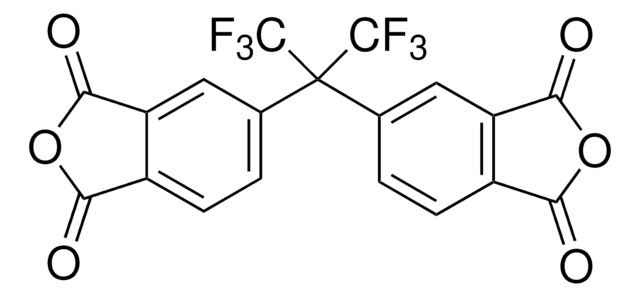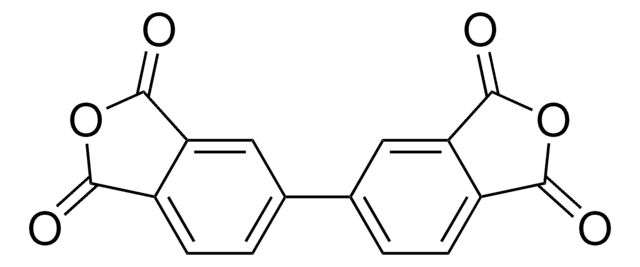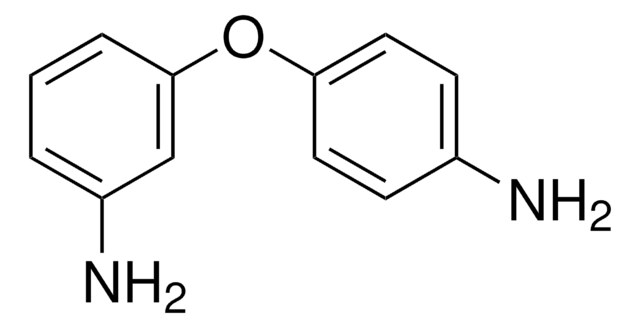516805
4,4′-Oxydianiline
97%
Synonym(s):
4,4′-Diaminodiphenyl ether, 4-Aminophenyl ether
About This Item
Recommended Products
vapor pressure
10 mmHg ( 240 °C)
Quality Level
Assay
97%
form
solid
mp
188-192 °C (lit.)
SMILES string
Nc1ccc(Oc2ccc(N)cc2)cc1
InChI
1S/C12H12N2O/c13-9-1-5-11(6-2-9)15-12-7-3-10(14)4-8-12/h1-8H,13-14H2
InChI key
HLBLWEWZXPIGSM-UHFFFAOYSA-N
Looking for similar products? Visit Product Comparison Guide
Application
- Aromatic polyamides by polycondensation with aromatic dicarboxylic acids.
- Azomethine bisphenols by reacting with aromatic aldehydes, which can be used to synthesize polyazomethines by the oxidative polycondensation in the presence of NaOCl as an oxidant.
- Polyguanamines by the chemoselective polycondensation with 2-amino-4,6-dichloro-1,3,5-triazine in the presence of potassium carbonate as a base.
Signal Word
Danger
Hazard Statements
Precautionary Statements
Hazard Classifications
Acute Tox. 3 Dermal - Acute Tox. 3 Inhalation - Acute Tox. 3 Oral - Aquatic Chronic 1 - Carc. 1B - Muta. 1B - Repr. 2 - Skin Sens. 1 - STOT RE 2 Oral
Target Organs
Thyroid
Storage Class Code
6.1C - Combustible acute toxic Cat.3 / toxic compounds or compounds which causing chronic effects
WGK
WGK 3
Flash Point(F)
426.2 °F - closed cup
Flash Point(C)
219 °C - closed cup
Personal Protective Equipment
Choose from one of the most recent versions:
Already Own This Product?
Find documentation for the products that you have recently purchased in the Document Library.
Customers Also Viewed
Our team of scientists has experience in all areas of research including Life Science, Material Science, Chemical Synthesis, Chromatography, Analytical and many others.
Contact Technical Service













